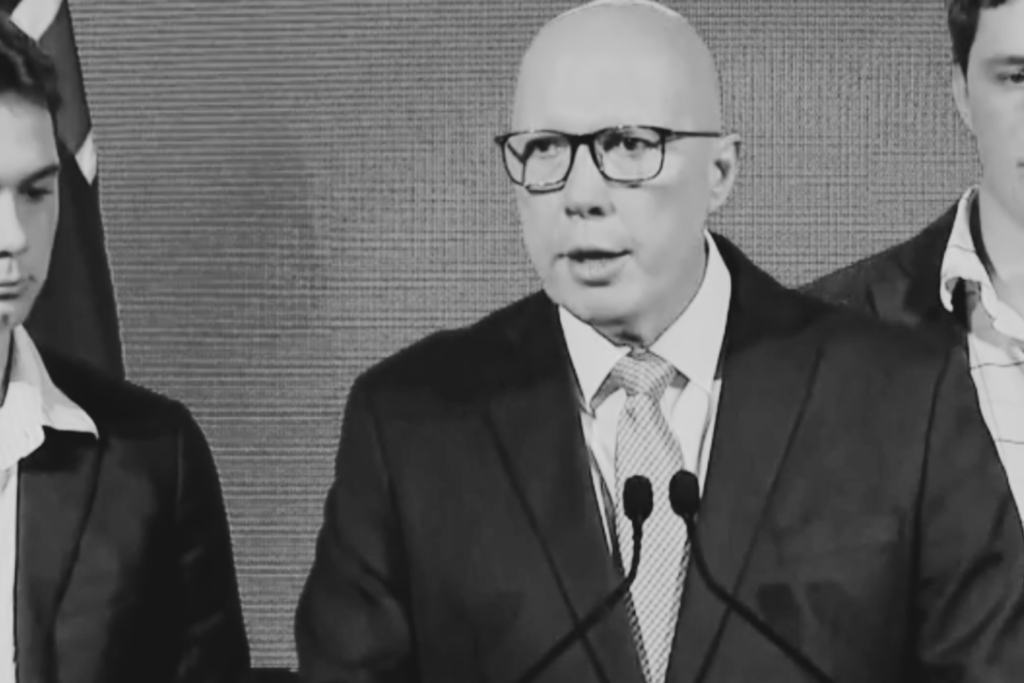It was a catastrophic result for the Coalition on Saturday night—not just because they lost in seismic proportions, but because, by the end of it all, as they sat in the rubble, one thing had become infinitely clear: the Liberal Party is dead in the water.
They are no longer a viable opposition.
The talent drain is significant. Over the past decade, the Liberal Party has lost a generation of respected, competent figures: Christopher Pyne, Malcolm Turnbull, Simon Birmingham, Kelly O’Dwyer, Mathias Cormann, Julie Bishop, Marise Payne, Greg Hunt, Josh Frydenberg—the list goes on. Many of these individuals brought a mix of economic sensibility, diplomatic experience, and social moderation. That loss is a big kick in the guts.
When Peter Dutton assumed leadership after the fall of Scott Morrison in 2022, there was a collective grimace across the political spectrum. His approval ratings had always struggled. How, many wondered, could he lead a viable opposition, let alone become a future prime minister?
And yet, as Dutton bowed out on Saturday night with what was, in fairness, a truly gracious concession speech, a new question emerged: who comes next?
A few names have already been floated—senior MP Dan Tehan (who narrowly held on to his seat of Wannon), Shadow Treasurer Angus Taylor, Deputy Leader Sussan Ley, and defence spokesman Andrew Hastie. But leadership may be the least of the party’s worries.
The real question is one of direction.
Following the 2022 election, Dutton didn’t seem to know which way to turn. He leaned into division, spearheading the campaign against the Voice to Parliament—a move that won short-term political points but deepened national divides. Emboldened, he took a harder line during the general campaign, adopting what many described as “Trump-lite” tactics. But Australians, time and again, have shown they’re not interested in that style of politics.
Some voices within the party are now urging a further shift to the right. Senator Alex Antic declared the need to “make the Liberal Party great again”—a phrase lifted directly from the Trumpian playbook. But the problem isn’t that the party hasn’t gone far enough right. It’s that it’s lost sight of its liberal foundations altogether.
What the party really needs is to make the Liberal Party make sense again.
Over recent years, the Coalition has veered away from its traditional liberal values—values grounded in individual freedom, economic responsibility, small government, and social inclusion. Instead, we’ve seen:
- An abandonment of climate leadership, with the party becoming increasingly hostile to renewable energy targets and international commitments, despite overwhelming public support for climate action.
- A retreat from multiculturalism, with rhetoric and policy that has alienated migrant communities and ignored Australia’s diversity.
- A disregard for women’s issues, exemplified by the mishandling of sexual assault allegations in Parliament and the failure to attract and retain strong female candidates.
- An erosion of civil liberties, such as support for overly punitive policies around protest and surveillance.
- A culture war approach to education and inclusion, targeting so-called “wokeness” rather than engaging constructively on real policy issues.
This is not the Liberal Party of Menzies. Nor is it the party of Turnbull or Bishop. It has become unmoored from the values that once gave it broad appeal: aspiration, enterprise, fairness, and modernity.
The way forward isn’t to double down on reactionary politics. It’s to rebuild with humility. That means revisiting core principles and actively recruiting a new generation of political talent—especially women, people of colour, and community leaders who reflect the true makeup of modern Australia.
The Coalition must become a party that can once again speak to the centre, to the future, and to the national interest—not just to its loudest factions.
Until then, it risks fading further into irrelevance. And that will frankly be bad for democracy.


